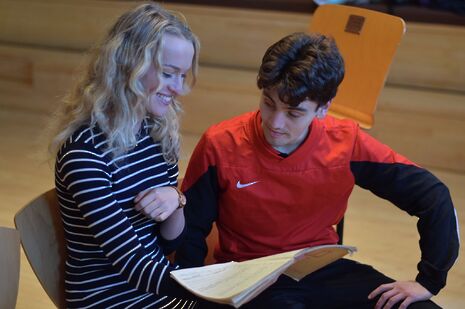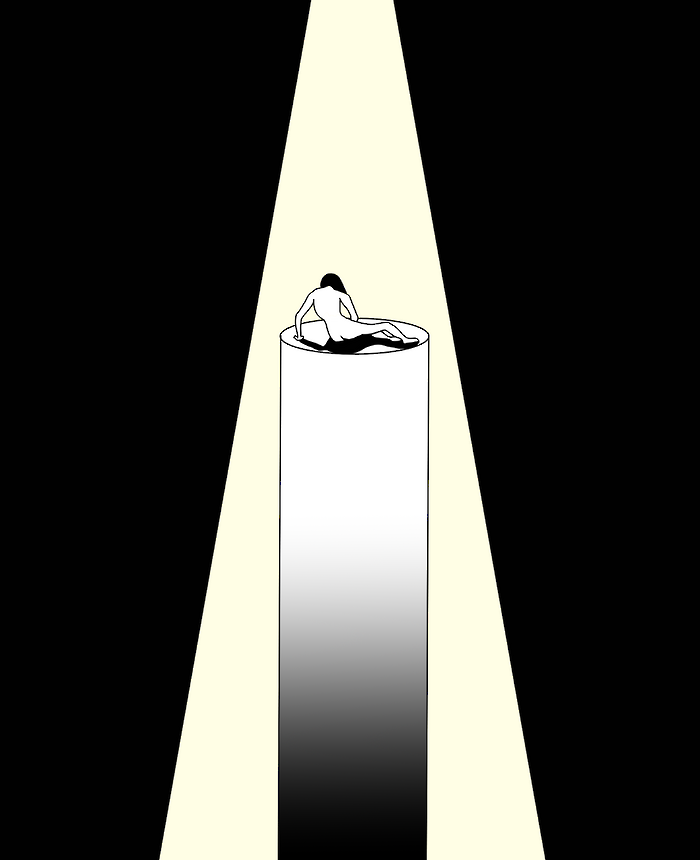Mozart Double Bill preview
“Character-driven, fast-paced and accessible”: a small team of talented undergraduate musicians pair two rarely-performed Mozart chamber operas

“It has been great to work as a small group – there hasn’t been any ‘zip, zap, boing’, we’ve just got on with, it to be honest” – recent Classics graduate and current PGCE student Michael Morrison seems refreshed as he describes the process he is currently undergoing of co-directing and performing in a double-bill of Mozart’s Bastien und Bastienne and Der Schauspieldirektor, the results of which will be shown in Trinity College Chapel next week. Trinity College Music Society has been a firm supporter of student opera, with past productions ranging from Opera Zone’s fantastic production of Monteverdi’s L'incoronazione di Poppea last week, and The Empyrean Ensemble’s staging of Puccini’s Suor Angelica still to come next term.
This Mozart Double-Bill is perhaps one of the most innovative projects TCMS has funded- the team behind this project has worked tirelessly to update the libretto to reflect a more contemporary setting, and has considered how the operas in the double-bill speak to one another, the premise being that Bastien und Bastienne is a production put on by the opera company of which Mr. Scruples (Michael Morrison) is the Impresario and Madame Goldentrill (Eleanor Burke) is the fading star.
"the process of directing collaboratively, says Eleanor, lends itself much better to chamber opera than a more traditional, hierarchical directing style"
When I sit down with Eleanor, an English Literature finalist who, like Michael, is co-directing as well as performing in these operas (and still somehow finding time to prepare for directing both the Gilbert & Sullivan Society and Cambridge University Opera Society’s main shows this year), her enthusiasm for the project is infectious. And indeed as an audience member, it is exciting to have the chance to see Bastien und Bastienne, which Mozart wrote when he was just twelve, and Der Schauspieldirektor, written just five years before he died, both of which are not regularly performed. Bastien und Bastienne tells a story of a teenage couple’s young love with all its trials and tribulations, whilst Der Schauspieldirektor is about two sopranos battling it out to be the prima donna.
The former showcases Mozart’s ability to write ‘cracking tunes’, as Eleanor puts it, from an early age, whereas the latter demonstrates his talent for virtuosic soprano writing, more famously apparent in works like The Magic Flute and The Abduction from the Seraglio.
Beyond this quirky, rich material, Musical Director, Oliver Cope is excited about how the project has come about, the thinking behind the process and what it means for the opera in Cambridge. To begin with, the small team of eight is composed almost entirely of undergraduates and thereby hopes to set a precedent of younger voices becoming more involved in the Cambridge opera scene – the acoustics of Trinity Chapel are ideally suited to such endeavours, in contrast to more cavernous venues like West Road Concert Hall. The process of directing collaboratively, says Eleanor, lends itself much better to chamber opera than a more traditional, hierarchical directing style, and has allowed her to truly treat the other cast members as colleagues and fellow students. Similarly, having the orchestra onstage and part of the action, rather than in a pit, adds an element of breaking the fourth wall and more opportunity for interaction with the conductor. Regarding their contemporary treatment of Mozart’s operas, Eleanor is keen to emphasise accessibility – singing the pieces in an English translation means the audience hopefully won’t miss any of the cheeky humour, and translating stories of breakups and performer rivalry into a modern student context is easily done.
Lovely music sung by promising young singers in beautiful surroundings – this, of course, is nothing new in Cambridge. However, the dynamic young team behind this Mozart Double-Bill is keen to explore novel ways of working together, bring new audiences to opera and set a precedent for more character-driven, fast-paced and accessible opera on a small scale to come. All that remains is for us to rock up to Trinity Chapel next week and find out if Bastien and Bastienne can patch things up, and who indeed is, as Madame Goldentrill asks, “the Prima Donna Assoluta of this company”.
 News / Cambridge academics sign open letter criticising research funding changes22 February 2026
News / Cambridge academics sign open letter criticising research funding changes22 February 2026 Features / Beyond the porters’ lodge: is life better outside college?24 February 2026
Features / Beyond the porters’ lodge: is life better outside college?24 February 2026 Theatre / Footlights Spring Revue? Don’t Mind if I Do!25 February 2026
Theatre / Footlights Spring Revue? Don’t Mind if I Do!25 February 2026 News / Cambridge and Manchester Universities meet for innovation partnership26 February 2026
News / Cambridge and Manchester Universities meet for innovation partnership26 February 2026 Fashion / The evolution of the academic gown24 February 2026
Fashion / The evolution of the academic gown24 February 2026










![How to Create an Attractive Freelancer Portfolio [5 Tips & Examples]](https://www.varsity.co.uk/images/dyn/ecms/320/180/2026/02/vitaly-gariev-ho2tNOWZYXM-unsplash-scaled.jpg)